Pediatric pulmonologists specialize in treating children who suffer from respiratory disorders, such as asthma or chronic bronchitis - these doctorss may provide care in inpatient or outpatient settings.
Watch an Overview of Pediatric Pulmonology
About Pediatric Pulmonology
Pediatric pulmonology is a highly specialized field of pediatric medicine focused on the care of infants, children and adolescents suffering from pulmonary disorders, such as lung disease and related conditions. These physicians may provide care in either an outpatient or inpatient setting, often working as part of a multidisciplinary medical team. Children suffering from conditions such as cystic fibrosis, lung disease, apnea, asthma, pneumonia, chronic bronchitis and other pulmonary conditions may be referred to the services of a pediatric pulmonologist.
Pediatric pulmonologists are uniquely trained to care for pulmonary diseases in children. Because every facet of these diseases can differ from their counterparts present in adults, the necessity of seeking out treatment from a pediatric pulmonologist is paramount. Because pulmonary disorders can create or exacerbate other medical conditions, proper care of these disorders by a pediatric pulmonologist is vital.
When diagnosing children for pulmonary complications, a pediatric pulmonologist may perform a wide range of diagnostic tests. For example, these physicians may employ spirometry tests to gauge the child’s lung capacity, sweat tests to look for signs of cystic fibrosis, general exercise tests to gauge the respiratory strengths/weaknesses of the child, as well as many other tests and procedures that help the physician arrive at a diagnosis.
Pediatric Pulmonology Education & Training
Pediatric pulmonologists gain the necessary training to treat children for respiratory and related complications throughout many years of intense study and clinical practice. After graduating with a bachelor’s degree that is usually concentrated in the sciences, the student must attend four years of medical school. During medical school, the student is exposed to the general facets of a medical education through classroom study, laboratory exercises and the treatment of patients in clinical settings.
After graduating from medical school with either an MD or DO medical degree, the physician must enter into a three year residency in pediatrics. During residency training, the physician gains valuable knowledge and experience with regard to the general medical treatment of children. Because children require care that is much different from that of an adult, the pediatric residency will allow the physician to hone the skills and knowledge that will translate into the professional provision of care for a wide range of diseases and illnesses found in children. During the residency, the physician will provide care and perform research under the guidance of a team of experienced physicians.
After completing a residency in pediatrics, the physician must enter into a pediatric pulmonology fellowship, which will provide the clinical experience and knowledge necessary to provide treatment as a pediatric pulmonologist. As a fellow, the physician will complete medical research pertinent to the field, as well as clinical rotations performing diagnosis and treatments for children suffering from respiratory disease. Fellows are expected to provide care in both inpatient and outpatient settings, diagnosing and treating children suffering from diseases such as asthma, cystic fibrosis and pulmonary infections, among many others. After completing fellowship training, they physician is fully trained to practice as a pediatric pulmonologist, and may seek board certification from the American Board of Pediatrics in the subspecialty of Pediatric Pulmonology. Like all physicians, pediatric pulmonologists are required to secure a medical license from the state(s) in which they practice.







